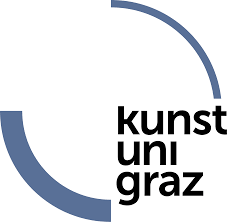


Inter_agency was an artistic research project funded by the Austrian Science Fund (PEEK AR 483) and hosted at the Institute of Electronic Music and Acoustics (IEM) of the University of Music and Performing Arts Graz. The project addressed the desideratum of human-computer symbiosis in composed electro-instrumental music and aimed to enhance human-machine communication in compositions for acoustic instruments and electronics by incorporating intelligent agent-based systems in them. The interaction model that served as a frame of reference for the project is Rowe's player paradigm - as opposed to the instrument paradigm; a model in which the musician and the computer are co-actors in a reciprocal interaction. In the player paradigm, the software agent perceives human actions through machine listening and acts in response to them and according to internal generative processes1.
The player paradigm has been explored in several interactive improvisation systems, but has found comparatively fewer applications in composed music. Inter_agency aimed to bridge this gap by exploring intelligent agent-based human-computer interaction from a compositional perspective. In particular, the type of human-computer interaction explored in the project was:
(1) sound-based, i.e. based exclusively on (human and machine) listening,
(2) composed - as opposed to improvised, and
(3) reciprocal, that is interaction in its literal sense: a process of mutual adaptation between the musician and the software agent.
The research question of the project was twofold:
How can the focus of the compositional process be shifted from composing sounds to composing sonic (agent) interactions? And what are the implications of this shift for composition and Music AI?
This research question was explored in compositions/case studies developed by the two main researchers, Artemi-Maria Gioti and Gerhard Eckel, and three artists-in-residence, in collaboration with the musicians of Klangforum Wien and Schallfeld Ensemble.
1. ROWE, R. (1993) Interactive Music Systems: Machine Listening and Composing. London: MIT Press.